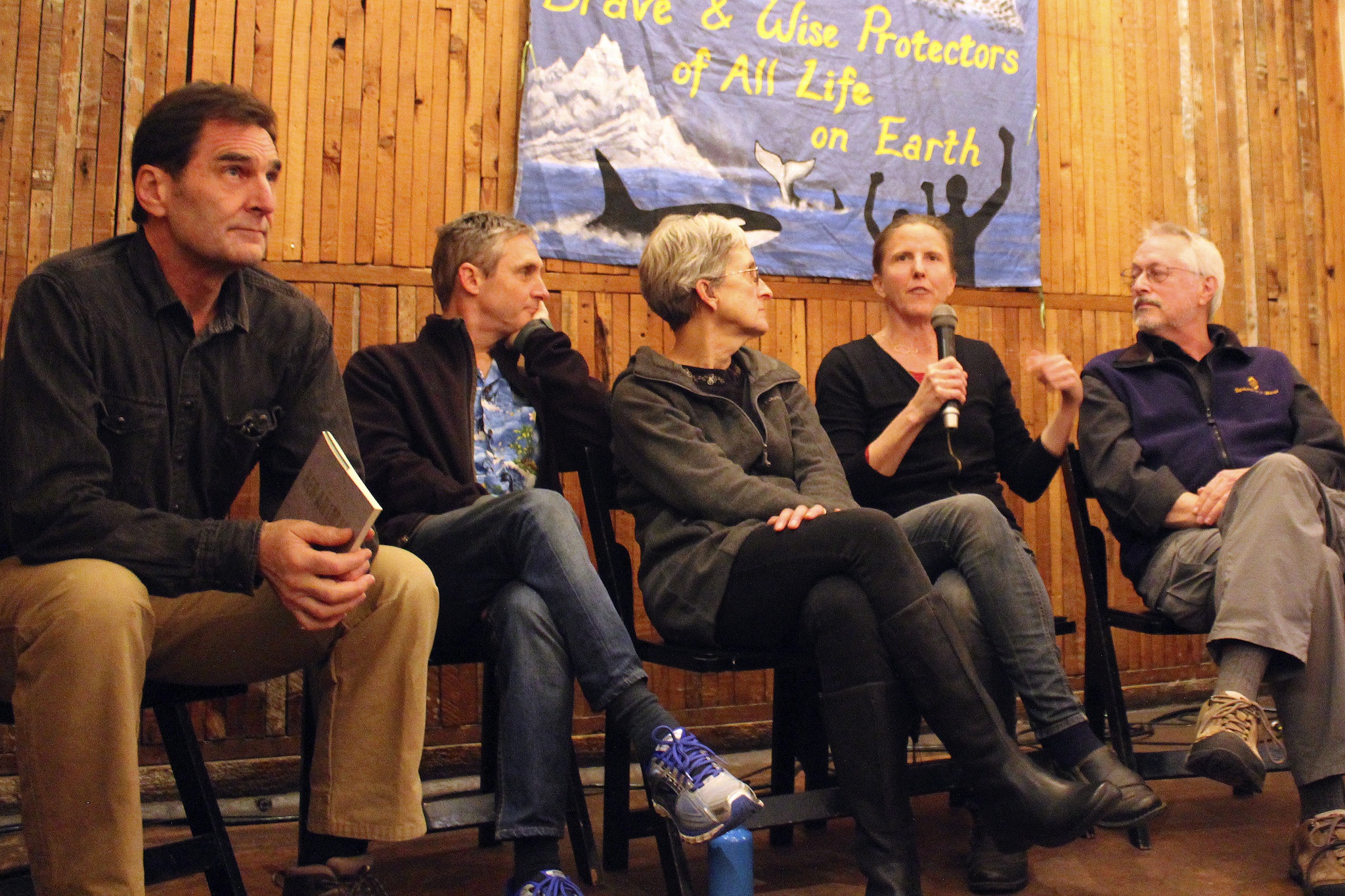October 11 was an unusual day for Enbridge, Inc. Canada’s largest oil and gas distributor, which ships crude from the the Alberta tar sands into the U.S. via two massive pipelines near Leonard, Minn., got a call about 8:30 a.m. letting it know that two activists were about to cut through four metal chains and manually crank the pipelines’ emergency shutoff valves. Ten minutes later, Enbridge got a second call: The activists were in and had their hands on the first wheel.
Because these valve-turners—Seattle-based climate activists Emily Johnston and Annette Klapstein—were joined that morning by three others doing the same thing in Washington, Montana, and North Dakota, shutting those valves meant that on October 11, the five pipelines weren’t able to deliver the 2.8 million barrels of crude they carry per day. That’s about 15 percent of U.S. daily oil consumption, which, activists say, is exactly the kind of reduction we need to make right now—and more next year, and more the next—to keep the country in line with the Paris climate agreement. The 2015 accord among nearly 200 countries aims to cap total global warming at 2 degrees Celsius, or 1.5 if possible; although President Obama ratified the agreement in September, our President-elect may pull us out of it.
“This is an absolute crisis,” says Klapstein. “And there is no politician anywhere who is dealing with it as the reality of the emergency that it is.”
The five activists broke the law, deliberately waited for the police to arrive, and deliberately got themselves arrested because they believe that this is the kind of dramatic act that the climate crisis requires. “For me, this is about being able to look any grandchildren I ever have in the face and say, ‘I did everything in my power to make sure you have a future,’ ” Klapstein says. “Not just ‘I ineffectually petitioned my political leadership’ … I personally put my body on the line and tried to do everything I could to stop it.”
Still, it’s scary. All the valve-turners are now facing decades in prison. Klapstein and Johnston are looking at 21 years and $20,000 for Minnesota laws that punish “criminal damage to property of critical public service facilities” and “aiding and abetting” said criminal damage, as well as two misdemeanors for trespassing. Climate Disobedience Center co-founder Ken Ward is facing three decades in prison for shutting a valve near Mt. Vernon, including charges of “criminal sabotage” and “assemblage of saboteurs.” Oregon-based activist Leonard Higgins is looking at a decade behind bars in Montana. And Seattle activist Michael Foster, who shut down Keystone XL in North Dakota, was originally charged with a grand total of 81 years in prison, although he assumes “they’ll have to pick and choose” and will probably only pursue the charges that add up to a mere 51 years.
If these charges seem ridiculous, they may be; activists are glib because they don’t anticipate those numbers to pan out in trial. Klapstein and Johnston’s lawyer tells them that it’s highly unlikely that they’ll be forced to spend more than a year or two in prison, even if they’re convicted—the action was nonviolent, and the only prior conviction either of them has is Klapstein’s misdemeanor for blocking an oil train in Anacortes. Enbridge, Inc. said in a statement at the time that the activists were endangering public safety and “inviting an environmental incident”; the Montana Petroleum Association called the protesters “eco-terrorists.” But the early-morning safety calls to Enbridge and other companies were designed to prevent any spill or accident, and Foster, like Klapstein and Johnston, says the only property damage he caused was to a small padlock he snapped with bolt-cutters. (There were two, and Foster replaced one, so “I owe them one padlock.”) He delayed the journey of hundreds of thousands of barrels of oil, though, which is much more expensive property; he jokes that he wishes he could have actually stolen it.
Regardless of the eventual outcome, leveraging such stiff penalties at the outset is likely intended to intimidate a climate movement that, in the Pacific Northwest, anyway, has no intention of scaling back. “People are supposed to be afraid to talk to each other, afraid to make plans, afraid to take action,” Foster says of the charges, which all include big penalties for some version of “aiding and abetting” or “assemblage.” “But it might have the opposite effect on some people.”
Foster and Johnston both say, for instance, that the idea that they would risk years in prison for this—that this is their level of commitment to climate change—has been transformative for many friends and neighbors. “I’ve had people say to me that when they read about [the action] or saw it on Facebook, immediately they saw the fight differently,” says Foster. “I’ve had people look me in the eye differently. I’ve had people listen to me differently.”
Johnston has a similar report: She says some friends told her that “when they realized what I had done … everything felt different to them, in their bodies, about where we’re at with climate change. They suddenly understood what I’d been doing and what I’d been talking about—for years—very differently. They know I don’t want to go to jail, and they know this is a big deal, full of scary, legal possibilities, and they know that I’m sane.” She pauses, then adds with a laugh: “More or less.”
All five valve-turners hope to use the “necessity defense,” the approach that the activists who sat on oil-train tracks in Everett in September 2014 used in their January 2016 trial: that the climate-change crisis made lawbreaking necessary. Ward is the first to face trial, in Mt. Vernon on January 9. Although the group has some pro bono attorneys working to defend them, legal fees will add up; Foster estimates some $100,000 more will be needed, which activists and their supporters are raising now.
“I think it’s absolutely my duty as an older person, especially as an older white woman, to take these risks,” says Klapstein, who at 64 is the youngest of Seattle’s “Raging Grannies,” five of whom were arrested during Shell No, but were never charged with anything. Emily Johnston, at 50, is the youngest of the five valve-turners. And that was strategic, activists say, since juries tend to go more lightly on older people (especially older women) who commit civil disobedience, and felony convictions have a bigger impact on younger people. “What do I care if I have a felony conviction? Honestly, I don’t care. I’m retired,” Klapstein says. “Obviously, I’m not looking forward to spending time in prison—jail is not fun at all—but I can do it. I’ll be OK.”
The question is not whether these five are willing to take such massive legal risks, says Johnston, but rather, “When does it make sense to take legal risks?” To Johnston, “Climate change is much scarier than a couple years in prison. If I believed, and I did, and I do, that [this action] has a chance of making a difference… then at that point, to my mind, there’s no choice.”









